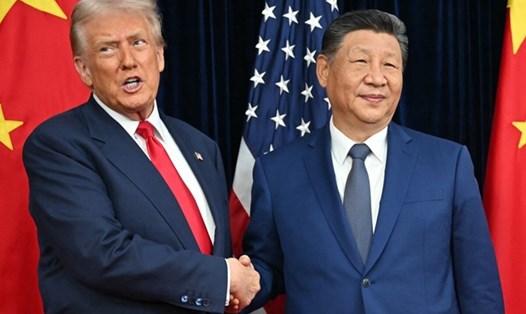US President Donald Trump signed a decree reducing rates related to fentanyl on imports from China and continuing to freeze some counterpart tariffs on goods from this country.
The measures were issued in 2 executive decrees signed on November 4 (local time), effective from November 10. Accordingly, fentanyl tax will be reduced by half, from 20% to 10%, while the temporary suspension of counterpart tax increases will also be extended for 1 more year.
The move came after the US-China summit in South Korea in October, where President Donald Trump and Chinese President Xi Jinping sought to stabilize trade relations between the world's two largest economies after months of escalating tensions over tariffs and export controls.
The tax cut is also seen as a significant concession for Beijing, as part of a comprehensive deal to ease trade restrictions between the two sides.
Mr. Trump said that this decision comes from China's commitment to lift export controls on rare earth minerals and strategic raw materials, as well as stop retaliatory measures against US chipmakers.
Beijing also agreed to buy more US agricultural products, including soybeans, hay and wood, and temporarily suspended tariffs on a range of US agricultural products.
Meanwhile, on the fentanyl issue, Mr. Trump said that there are signs that China is increasingly trying to stop the smuggling of this drug as well as the raw materials used for production.
China has pledged to take significant measures to end the flow of fentanyl into the US, including blocking the transportation of some designated chemicals to North America and strictly controlling the export of other chemicals globally, the decree stated.
President Trump said the US State Department and the Department of Homeland Security will monitor China's implementation of its commitments, and warned that the decree could be adjusted if Beijing violates.
The deal, expected to take effect for 1 year, is seen as a step to stabilize bilateral relations after a period of escalating tensions between Washington and Beijing.











